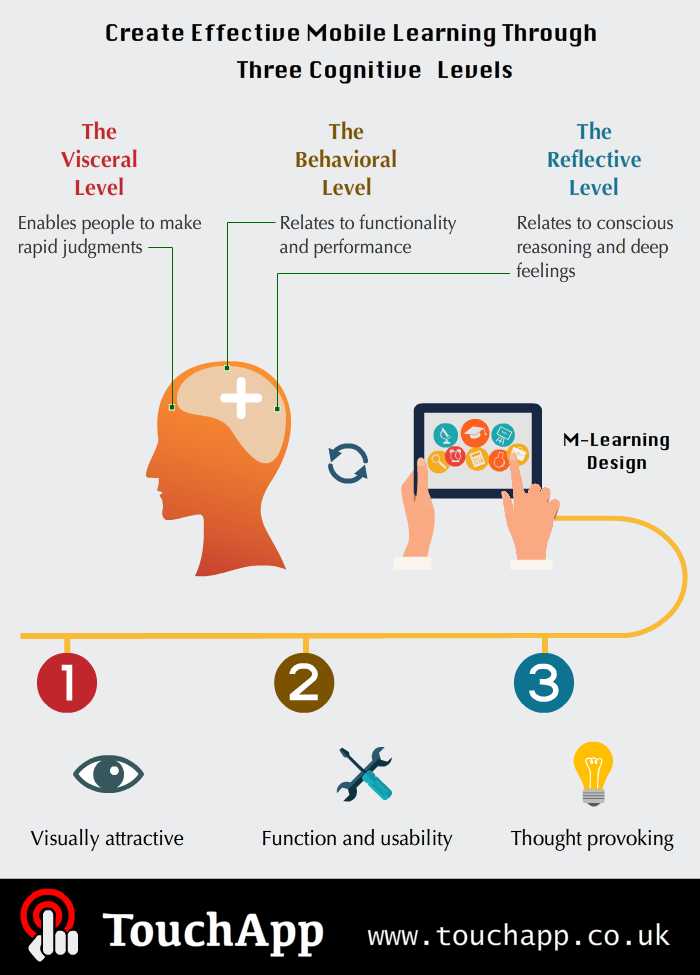Mobile learning or m-learning is the new trend for education, and pioneers of alternative education are trumpeting the use of this modern technology to enhance learning and teaching. But with most mobile learning adaptors still focus on simply changing the existing content to fit into new mobile platforms, little efforts have been tried to design effective m-learning that has impacts on learners’ emotions and causing a lasting impression. Here we explain how the three cognitive levels (visceral, behavioral, and reflective), first defined by Donald Norman, can be applied in m-learning to achieve compelling m-learning experience.
1. The Visceral Level
The visceral level reaction is the most basic cognitive process caused by nature. Humans evolved to make rapid judgments of appearance and receive immediate powerful emotional impressions at the preconscious level. The first impression of your m-learning will undoubtedly affect learners acceptance of the whole content. An effective m-learning design need to grab learners’ attention and spark interest at first glance. Therefore, developers need to select the appropriate layout, color theme, font etc. to present the content and only aesthetically pleasing design will achieve success at the visceral level.
2. The Behavioral Level
After surpassing the fist impression stage, learners cognitive process will move on to the behavioral level, through which their complex brain can analyze a situation and alter behavior accordingly. Function and usability are the fundamental components of good behavioral design for m-learning. M-learning developers need to understand users’ needs and direct learners’ behavior through intuitive design, which will give learners more confidence and avoid unnecessary confusion and frustration. M-learning design should also implement clear navigations to direct students to follow the underneath learning journey and users should easily find where to click, tap or swipe to get the result they want.
3. The Reflective Level
The reflective level of cognition occurs after visceral and behavioral process and it involves consciously reasoning and analyzing of your own activities. In education, reflection is an inter-subjective process, which centers on the meaning of the course to the learners. At this level, users will think back, reflect upon their total experience of learning and decide the overall impression of the course. A compelling m-learning design should encourage learners to activate prior knowledge, and to constantly reconstruct their learning. For example, m-learning may integrate blog or social media to allow students to reflect on their work processes and outcomes among peers.
Follow us on Twitter: @TouchApp_uk
From Mobile App development company TouchApp
![]()
